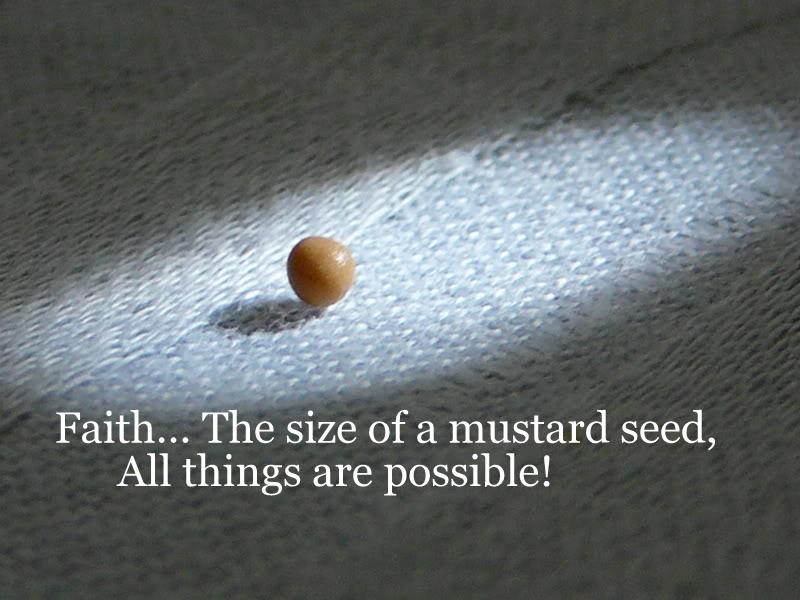

The result for the piece of grain is a great harvest of more kernels (Mark 4:8). And like that seed, He has to die (John 12:24). As the seed is sown in the ground, God becomes man. That Jesus, the Son of God, came to earth as a man to die a man's death, is essential for the gospel. And even His hometown has a bad reputation (John 1:46). He is falsely considered an illegitimate son of Mary (Mark 6:3). He is rather plain looking (Isaiah 53:2). And the Lord said, If ye had faith as a grain of mustard seed, ye might say unto this sycamine tree, Be thou plucked up by the root, and be thou planted in. Here, as in the other proverbs of Mark 4, the seed can be seen as the gospel that is scattered amidst a crowd. In Matthew 17:20, Jesus says that faith as small as a mustard seed can move a mountain.
#Mustard seed kjv free#
Pliny the Elder, in his book The Natural History, says of mustard that it germinates immediately upon being sown and it is "scarcely possible to get the place free of it." He also says that mustard relieves the sting of serpents and scorpions, neutralizes poisonous fungi, cures post-nasal drip, and helps with toothache, asthmas, epilepsy, and "hysterical suffocations." Although his enthusiasm for mustard's medicinal uses is certainly hyperbolic, since Pliny the Elder lived in the first century, we can assume that Jesus' audience held similar views. Our cultural equivalent would be to point out how a mighty oak tree is grown from a single acorn.

The seeds are about one to two millimeters in diameter, or about 1/16 inches. Reference to the mustard seed as "the smallest" is a Jewish proverb. Although the mustard seed isn't the smallest seed on the entire planet, it was the smallest seed Jews planted in their gardens at this time.


 0 kommentar(er)
0 kommentar(er)
